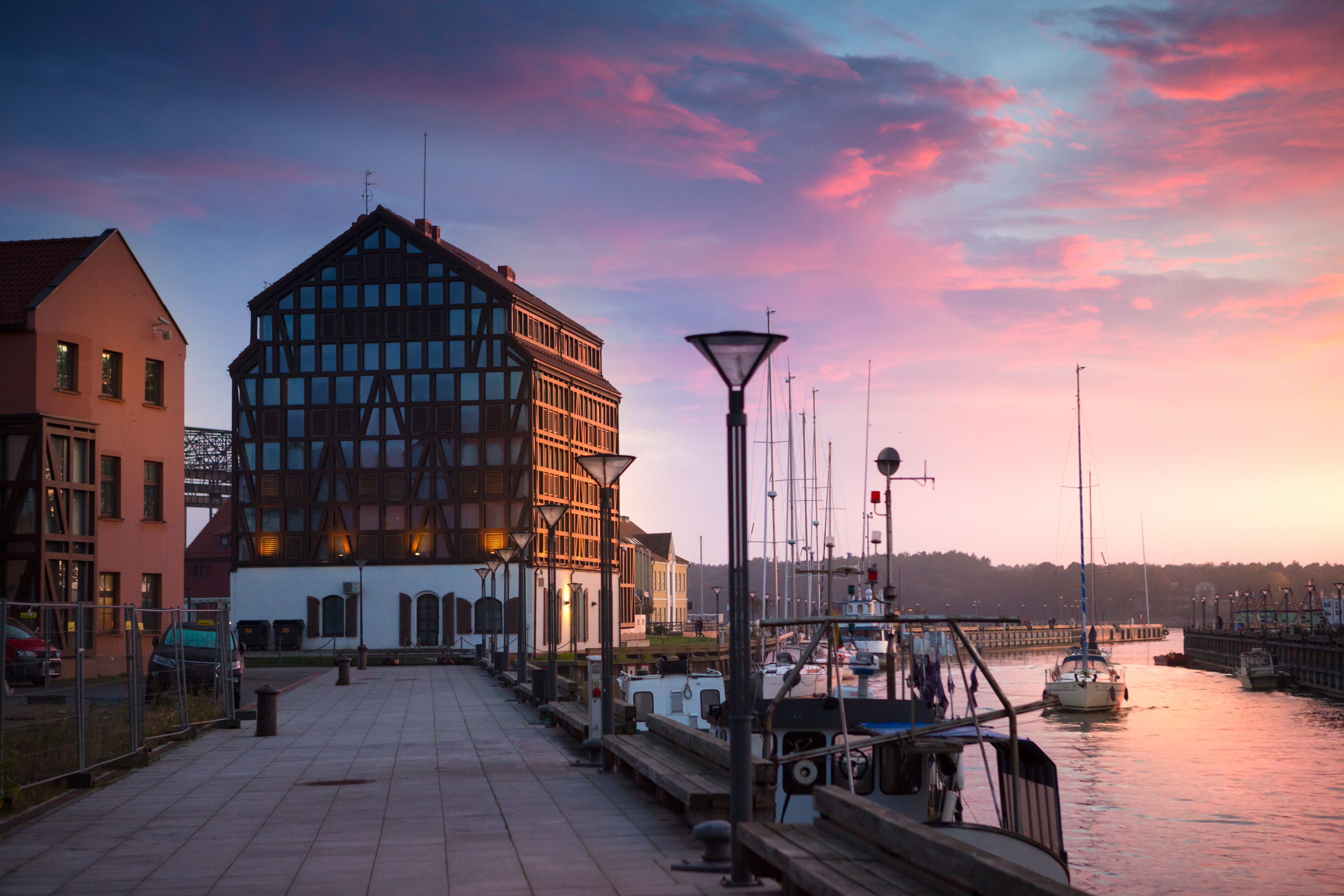
The Ober-Haus Apartment Price Index (OHBI) in Lithuania, which records changes in apartment prices in five major Lithuanian cities (Vilnius, Kaunas, Klaipėda, Šiauliai and Panevėžys), increased by 0.1% in February 2023 (the price index in January 2023 fell by 0.1%). The apartment prices in the major cities of Lithuania have increased by 16.3% over the last 12 months (the annual growth in January 2023 was 17.1%)
In February 2022, apartment sales prices decreased in Klaipėda and Panevėžys by 0.1% and the average prices per square meter were EUR 1,604 (-1 EUR/sqm) and EUR 1,056 (-1 EUR/sqm) respectively. In Vilnius, Kaunas and Šiauliai, apartment sales prices increased by 0.1%, 0.2% and 0.4% respectively, and the average prices per square meter stood at EUR 2,543 (+3 EUR/sqm), EUR 1,697 (+3 EUR/sqm) and EUR 1,077 (+4 EUR/sqm) respectively.
Apartment prices rose year-on-year in February 2023 in all major cities of the country: 18.7% – in Vilnius, 13.5% – in Kaunas, 13.4% – in Klaipėda, 11.2% – in Šiauliai and 13.5% – in Panevėžys.
“The overall activity of the Lithuanian housing market has been in the negative zone for twelve months in a row – the number of residential property transactions has decreased on a year-on-year basis. According to the State Enterprise Centre of Registers, in February 2023 around 1,740 older apartments were sold in Lithuania, 15% less than in February 2022. This shows that a significant number of potential home buyers have postponed their home purchase plans or are taking time to make such decision. This has led to a freeze in apartment sale prices, which has remained unchanged in the major cities for the fourth month in a row.
Despite the significant slowdown in the housing market, sellers are still able to sell their properties at record high prices, however it takes significantly longer to sell properties than before. Meanwhile, those who wish to sell their homes faster must seek a compromise with potential buyers and, in most cases, reduce the price. But time is not on the sellers’ side at the moment, as potential home buyers are concerned about still rising interest rates, which not only increases the cost of servicing the existing mortgages, but also reduces the affordability of the home they plan to purchase. According to the latest data of the Bank of Lithuania, in January 2023, the interest rates for newly issued housing loans stood at 4.7%, more than a two-fold increase since mid-2022 (2.52 percentage points). Regardless of the European Central Bank’s response to the recent tensions in the US and European banking sector, the existing and new borrowers have not yet felt the full burden of rising interest rates. The potential home buyers are quite sensitive to significant changes in the financial market and the country’s economy, so it looks like in the near future they will continue to be extremely cautious when making decisions about the most expensive purchase in their life,” noted Raimondas Reginis, Head of Market Research for the Baltic Countries at Ober-Haus.
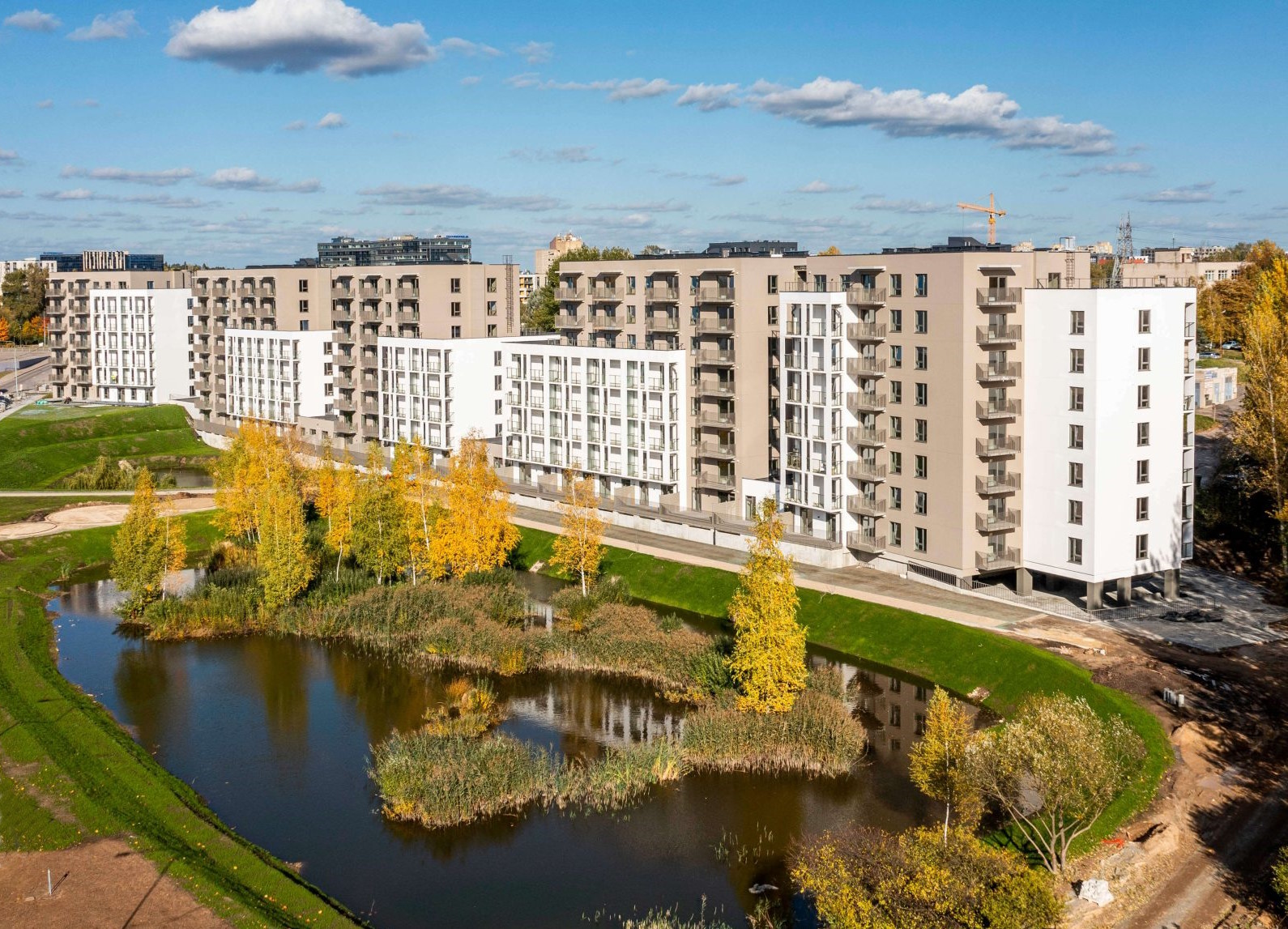 The year 2022 was characterised by high volumes of apartment construction in the country’s major cities with a very solid pipeline for 2023. However, due to the economic challenges caused by the war in Ukraine, developers of new housing projects suddenly faced a sharp, unplanned drop in demand. As we can see, demand for housing can suddenly drop but projects that have already started construction cannot be stopped so quickly. Developers themselves have an interest and a commitment to buyers to complete the projects they have begun even when the market is not in the best condition. Therefore, in 2023, housing developers will face significantly more challenges in both completing projects and developing new ones.
The year 2022 was characterised by high volumes of apartment construction in the country’s major cities with a very solid pipeline for 2023. However, due to the economic challenges caused by the war in Ukraine, developers of new housing projects suddenly faced a sharp, unplanned drop in demand. As we can see, demand for housing can suddenly drop but projects that have already started construction cannot be stopped so quickly. Developers themselves have an interest and a commitment to buyers to complete the projects they have begun even when the market is not in the best condition. Therefore, in 2023, housing developers will face significantly more challenges in both completing projects and developing new ones.
According to Ober-Haus data, in 2022, developers in Vilnius built 4,162 apartments for sale, which is 1% more than in 2021. At the beginning of 2022, it was predicted that developers would actually complete the construction of 4,800 apartments during the year, but the final result was ultimately smaller than the forecast. This is not surprising, as construction often takes longer than planned, especially for larger projects or development phases. There are also cases where construction is halted due to legal disputes or project adjustments.
Over the last five years, construction volumes in Vilnius have remained broadly stable, with between 4,100 and 4,400 apartments actually being built for purchase each year. The only exceptional year was 2020, when developers built 5,359 apartments. In 2022, buyers could expect to settle on any of 51 different projects (including continuing phases).
“While 2022 was not an exceptional year for the capital city’s market in terms of the supply for purchase, the number of apartments offered for rent in the market reached a record high. In 2022, three projects (Youston, Shed and Lumi Namai) were completed and opened in Vilnius, offering 580 apartments for long-term rent. Seeing the market demand for professionally managed housing, developers are not only investing in the reconstruction of old buildings and adapting them for rental use, but also building new apartment blocks for this specific purpose,” says Raimondas Reginis, Research Manager for the Baltics at Ober-Haus. The significant addition of new rental housing to the market was particularly timely in 2022, when a large number of people from Ukraine, Russia and Belarus arrived in Lithuania and its capital, and the market faced a sudden surge in demand and rental prices.
2022 saw the largest number of apartments built in three administrative districts of Vilnius
Developers built new apartments in 17 out of 21 administrative districts of Vilnius in 2022. The three of them with the largest share of developers’ attention were Verkiai (15.8%), Lazdynai (15.4%) and Šnipiškės (15.2%), amounting to 46% of the total number of apartments that were built. The Šnipiškės can be singled out as the fastest growing district in Vilnius City. Since 2016, it has been ranked 1-4 among the city’s districts in terms of the volume of apartment construction, and over the last 7 years almost 4,000 apartments have been built for purchase in this area. In 2022, the administrative areas that usually have high construction volumes (Pilaitė and Naujamiestis), did not record many construction projects: Pilaitė had 3.7% and Naujamiestis 2.1%. The high construction volume in the central part of Naujamiestis over the last decade has largely exhausted the development potential (due to the lack of suitable sites for conversion or undeveloped plots), and developers have now shifted their investments to the southern part of this area. Meanwhile, the planned redevelopment of the Vilnius railway station area will provide an additional impetus to the revival of the southern part of Naujamiestis and the Old Town district.
Average size of apartments remains stable with no change expected
Over the last ten years, the average size of flats for sale in apartment buildings in the capital of the country has remained stable and fluctuated around 51-54 sqm. According to Ober-Haus data, in 2022, the average floor area of an apartment in multi-flat buildings built in Vilnius, was 52.2 sqm. “Analysing the projects that are currently under construction or those in the planning stage, it is evident that the average floor area of apartments in the new-build market will not increase in the near future. In fact, more spacious apartments are only being designed in higher class projects, which are usually built in the central part of the city or in prestigious areas,” says Mr Reginis. In 2022, the average size of flats built in the Old Town and New Town districts was 61.7 sqm, while in Žvėrynas, Antakalnis and Šnipiškės districts it was 58.8 sqm. And the apartments with the smallest floor area were built in the remaining part of Vilnius city amounting to 49.1 sqm. Meanwhile, those looking for more spacious and affordable housing, are looking towards the still actively expanding segment of individual or sub-unit residential buildings on the outskirts of the city. For example, in 2022, according to the State Data Agency (formerly the Department of Statistics of Lithuania), Lithuania had a record amount of detached and semi-detached housing built.
Limited numbers of A++ energy class apartment blocks
Despite the fact that the requirement to comply with the A++ energy class for new buildings when applying for a building permit came into force on 1 January 2021, very few these apartment blocks have been built. “The data collected by Ober-Haus show that of the apartments built for sale in Vilnius during 2022, the largest share accounted for A+ energy class apartments at 77.8% (in 2021 the share of A+ energy class was 55.1%), A class were at 12.4% (in 2021 – 33.2%), while the relative share of A++ energy class has even declined to 4.4% (in 2021 – 6.2%). The remaining share of apartments (5.4%) was in energy class B or lower (5.5% in 2021).
“Evidently, developers were reluctant to voluntarily invest in the construction of the highest energy class apartment blocks and had been trying to prepare projects and obtain permits for them before the A++ energy class requirements came into force. For the period 2019–2022, only 2-4 different apartment projects in Vilnius were issued with the highest energy class certificates each year. In 2023, the number of high-energy efficiency class apartment buildings should increase significantly, with the A++ energy class only starting to dominate from 2024-2025,” commented Mr Reginis.
Kaunas gains momentum, while Klaipėda construction volumes remain stable
The continuing construction of apartment blocks in Kaunas during 2022, once again confirmed that the active development of the residential and commercial real estate market in Kaunas, which started in 2016-2017, has gained momentum. According to Ober-Haus data, in 2022, developers in Kaunas built 1,020 apartments for purchase, 8% more than in 2021. This is the highest annual number of apartments built since 2008, when 1,070 new apartments were built in apartment buildings. The geography of apartment buildings under construction in Kaunas is very wide – from newly built apartments on the outskirts of the city to reconstructed or newly developed projects in the central part of the city. In total, in 2022, buyers could settle in any of 27 different projects (including continuing phases of projects). However, in 2022, the two Kaunas administrative districts were the most prominent, accounting for half of all apartments built in Kaunas: Dainava (28%) and Šilainiai areas (22%). “Kaunas has clearly become the second largest construction site after the country’s capital, where not only well-known companies in the local market are operating, but also new, financially strong and well-known developers in Lithuania are gradually arriving. Well established developers have the potential to implement really ambitious real estate projects, to meet the demand for new housing and at the same time to help the city grow,” says Mr Reginis. According to the State Data Agency, over the last five years the number of permanent residents in Kaunas City Municipality alone has increased by 5.8% or almost 16,800 residents.
Meanwhile, 2022 was not an exceptional year for Klaipėda. According to Ober-Haus data, in 2022, developers in Klaipėda built 466 apartments for purchase in apartment buildings, or almost twice as many as in 2021. The solid growth in construction volumes was mainly due to the very low construction volumes in 2021. In contrast, looking at the construction volumes over the last five years, we see that in 2018-2019, more than 400 apartments were built each year, while in 2020-2021, construction volumes slowed down to 320 and 237 apartments respectively. In total, in 2022, buyers in Klaipėda could settle in any of 11 different projects (including the continuing phases of projects). “It is clear that Klaipėda is still lacking larger-scale investments, especially in the central part of the city. There are hopes that the current slowdown in the housing market will not cool down the developers’ determination and we will soon see the start of the implementation of more ambitious residential projects planned in this city”, enthuses Mr Reginis.
Developers will have a lot of work (commitments) on site in 2023
Taking into account the number of apartments currently under construction and their construction stages, Ober-Haus forecasts that in 2023 a total of around 5,200 apartments will be built in Vilnius, or 25% more than in 2022. The current construction of the apartments that will be completed in 2023 was initiated between 2021 and 2022, when the housing market was experiencing its fastest growth period in the last decade. If the projects currently under construction are completed on time, the annual supply in the country’s capital will be among the highest in history.
In 2023, developers in Kaunas will try to surpass all previous supply indicators. In total, about 1,500 apartments are expected to be built in Kaunas this year, or 47% more than in 2022. Historically, this would be an impressive rate and one that has never been recorded before. To date, the highest number of apartments for sale was built in 2008 (1,070 apartments). In terms of the relative number of apartments built (compared to the number of permanent residents), Kaunas will overtake Riga in 2023 and will be the third largest city in the Baltic States (with Vilnius in first place and Tallinn in second).
In 2023, construction volumes in Klaipėda should remain stable and the number of apartments built for sale will be similar to those in 2022 – 450 apartments. “The biggest news in the Klaipėda housing market, is a really ambitious project planned for the Old Town near Jonas’ Hill. The 3.5 ha area will be developed into a multi-apartment quarter christened Bastionų Namai, where over 700 apartments are planned. The project is currently undergoing preparatory work and the first apartment blocks are expected to be built here in 2024,” explains Mr Reginis.
While this year there is a lot of construction planned in the country’s major cities and buyers can be pleased with the abundance of choice, the activity rates in the primary apartment market are a cause for concern for developers. The sharp drop in new apartment sales since the outbreak of the war in Ukraine remains at a low level. According to Ober-Haus, in 2022, compared to 2021, the number of new apartment sales in Vilnius was as much as 65% lower, while in Kaunas and Klaipėda, the drop in purchase agreements for apartments was 40% and 37% respectively.
Although most of the apartments to be built this year already have purchase agreements, sales volumes for January-February 2023 are not optimistic. Of the apartments to be built in 2023, 65% had already been sold or reserved by the end of February: 65% in Vilnius, 69% in Kaunas and 80% in Klaipėda. The number of completed apartments in projects under construction looks really solid and the number of unsold apartments in already built apartment blocks should not be a major concern for developers. Of course, the total number of unsold apartments is projected to increase, but the overall rate should not be high. However, while the overall supply and demand indicators look reasonably good, the risks for developers are still noticeably higher than before. “The biggest challenges this year may be faced by smaller or financially weaker developers, for whom a marked drop in market activity may disrupt the pre-planned financial flows in their projects. This is especially true in Vilnius, where the competition among developers is the strongest”, says the representative of Ober-Haus.
 The Ober-Haus Apartment Price Index (OHBI) in Lithuania, which records changes in apartment prices in five major Lithuanian cities (Vilnius, Kaunas, Klaipėda, Šiauliai and Panevėžys), fell by 0.1% in January 2023 (the price index in December 2022 remained unchanged). The apartment prices in the major cities of Lithuania have increased by 17.1% over the last 12 months (the annual growth in December 2022 was 20.4%).
The Ober-Haus Apartment Price Index (OHBI) in Lithuania, which records changes in apartment prices in five major Lithuanian cities (Vilnius, Kaunas, Klaipėda, Šiauliai and Panevėžys), fell by 0.1% in January 2023 (the price index in December 2022 remained unchanged). The apartment prices in the major cities of Lithuania have increased by 17.1% over the last 12 months (the annual growth in December 2022 was 20.4%).
In January 2023 apartment sales prices decreased in Vilnius and Panevėžys by 0.2% and 0.3% respectively, and the average prices per square meter were EUR 2,540 (-6 EUR/sqm) and EUR 1,057 (-3 EUR/sqm) respectively. In Kaunas and Klaipėda, apartment sales prices increased by 0.2% and 0.3% respectively, and the average prices per square meter were EUR 1,694 (+3 EUR/sqm) and EUR 1,605 (+4 EUR/sqm) respectively. Apartment sales prices in Šiauliai remained unchanged and the average price per square meter was EUR 1.073.
Apartment prices rose year-on-year in January 2023 in all major cities of the country: 19.7% – in Vilnius, 14.1% – in Kaunas, 14% – in Klaipėda, 12.2% – in Šiauliai and 14% – in Panevėžys.
“The ongoing slack in the housing market has caused apartment sales prices to stagnate, however in recent months, a minor decrease has been recorded across the country. According to the State Enterprise Centre of Registers, in January 2023 around 1,600 older apartments were sold in Lithuania, 24% less than in January 2022. Over the last three months, the secondary apartment market has seen its biggest annual decline in market activity since the beginning of the war in Ukraine.
The significantly reduced market activity continues to limit the opportunities for sellers to increase property prices and those who want to sell their homes quickly have to accommodate the growing pressure from buyers to lower their prices. However, there are not many sellers currently in the market who are under pressure to sell their properties as soon as possible. As a result, only small fluctuations in sales prices have been recorded. Meanwhile, recent transactions show that buyers are reluctant to overpay for residential properties and often manage to negotiate additional discounts.
Currently, the general trend in price changes reminds us of 2014, when due to geopolitical tensions resulting from the annexation of Crimea, the overall expectations of the Lithuanian population and its businesses declined significantly. Housing market activity decreased, and the rise in apartment sales prices halted in H2 2014. However, when Russia invaded Ukraine in 2022, provoking the ongoing war, geopolitical tensions increased to record heights, creating a negative impact on the prospects for global economic development. The drawn-out military and economic confrontation between various countries directly affects the real estate market of our country, so this period of stagnation may be protracted,” noted Raimondas Reginis, Head of Market Research for the Baltic Countries at Ober-Haus.
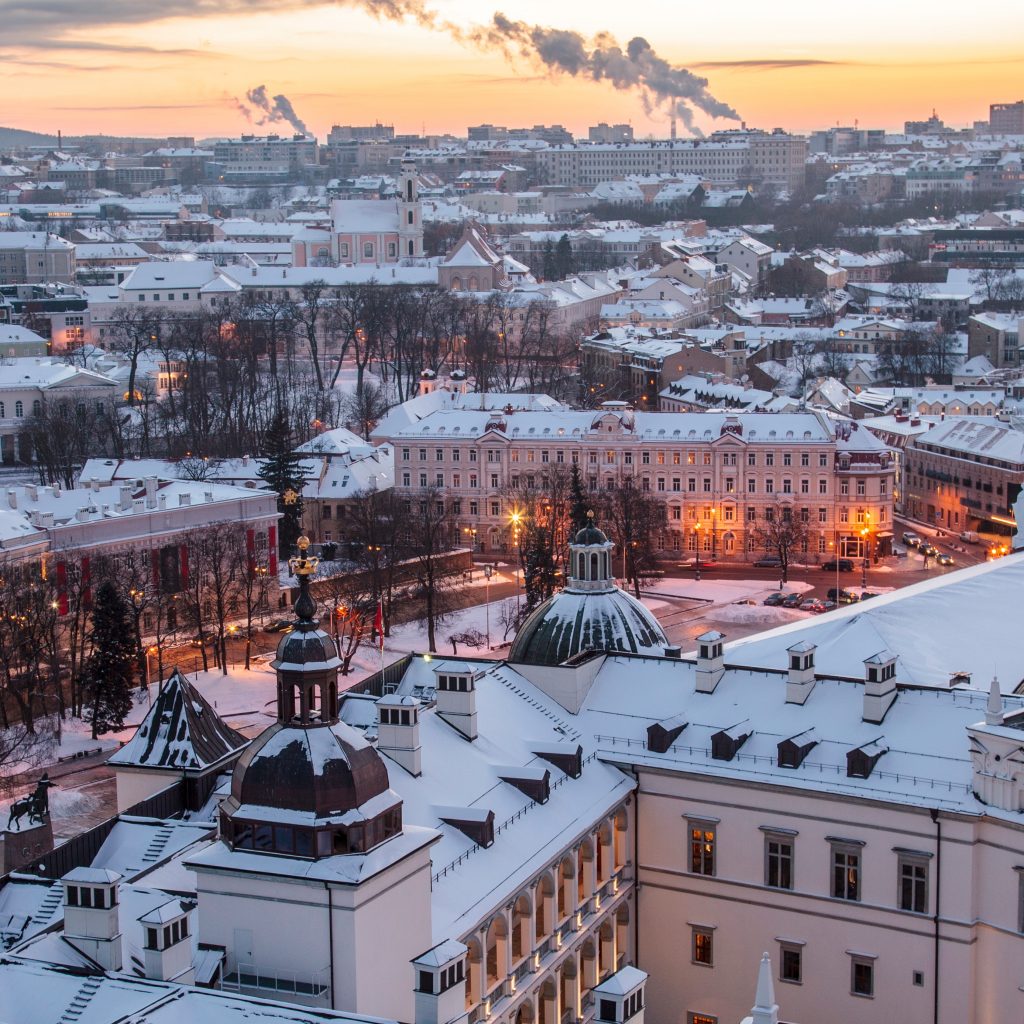 The Ober-Haus Apartment Price Index (OHBI) in Lithuania, which records changes in apartment prices in five major Lithuanian cities (Vilnius, Kaunas, Klaipėda, Šiauliai and Panevėžys), remained unchanged in December 2022. The apartment prices in the major cities of Lithuania have increased by 19.1% over the last 12 months (the annual growth in November 2022 was 20.4%). The average annual increase in apartment prices in 2022 (year-on-year in January-December 2022 compared to January-December 2021) reached 21.5%.
The Ober-Haus Apartment Price Index (OHBI) in Lithuania, which records changes in apartment prices in five major Lithuanian cities (Vilnius, Kaunas, Klaipėda, Šiauliai and Panevėžys), remained unchanged in December 2022. The apartment prices in the major cities of Lithuania have increased by 19.1% over the last 12 months (the annual growth in November 2022 was 20.4%). The average annual increase in apartment prices in 2022 (year-on-year in January-December 2022 compared to January-December 2021) reached 21.5%.
In December 2022, apartment sales prices decreased in Kaunas, Klaipėda and Šiauliai by 0.2%, 0.3% and 0.2% respectively, and the average prices per square meter were EUR 1,691 (-2 EUR/sqm), EUR 1,601 (-5 EUR/sqm) and EUR 1,072 (-2 EUR/sqm) respectively. In Vilnius and Panevėžys, apartment sales prices increased by 0.1% and 0.3% respectively, and the average prices per square meter were EUR 2,546 (+3 EUR/sqm) and EUR 1,060 (+3 EUR/sqm) respectively.
Apartment prices rose year-on-year in December 2022 in all major cities of the country:
22% – in Vilnius, 15.7% – in Kaunas, 14.9% – in Klaipėda, 15.3% – in Šiauliai and 15.9% – in Panevėžys
“Despite the fact that in November and December 2022 apartment sales prices in the major cities of the country remained essentially unchanged (slight positive or negative changes were recorded), the average annual increase in apartment sales prices in the major cities of the country was one of the highest in history and stood at 21.5% (in 2021, the average growth in prices was 14.2%). A faster average annual increase in apartment prices in the major cities of the country was recorded in 2004 (25.7%), 2005 (47.8%), 2006 (36.9%) and 2007 (26.9%).
The year 2022 saw an increase not only in the sales prices of residential property, but also simultaneously an increase in the prices of consumer goods and services in the country. According to Statistics Lithuania, the annual inflation rate calculated in December 2022 according to the Harmonized Index of Consumer Prices was 20.0%, while apartment sales prices increased by 19.1%. Following adjustment for inflation, apartment prices in the major cities of the country fell by 0.5% in 2022. A decrease in real apartment sales prices was last recorded in 2017 (0.3%). Statistically, in 2022 the residential property in the major cities of the country largely retained its value despite record inflation rates.
Economists forecast that in 2023 the inflation rate growth will decelerate (a decrease in the prices of goods or services can be expected in certain months) and at the end of the year the annual inflation rate in Lithuania may be under 5%. Meanwhile, the dynamics of the residential property sales prices clearly shows that the rapid price growth is already in the past and now we can observe a period of price stabilization. The prospects for the housing market for at least the next half-year are not optimistic, because the number of transactions in both the primary and secondary housing markets remains a decade low and in the current conditions it is difficult to expect a rapid market recovery. Rising mortgage rates, falling income in real terms due to inflation and not highly optimistic expectations of the population force buyers to postpone the purchase of residential properties for record high prices and discourage them from making greater commitments. In the housing market that still remains sluggish, therefore, we may witness higher negative changes in the sales prices in individual segments in the near future and perhaps expect already improving housing market indicators in the second half of 2023. For the meantime, however, we must wait for inflation to decelerate to the extent it would not exceed the growth rate in household income and for some greater clarity regarding changes in interest rates,” Raimondas Reginis, Head of Market Research for Baltic Countries at Ober-Haus, noted.
 The Ober-Haus Apartment Price Index (OHBI) in Lithuania, which records changes in apartment prices in five major Lithuanian cities (Vilnius, Kaunas, Klaipėda, Šiauliai and Panevėžys), remained unchanged in November 2022 (the increase in October 2022 was 1.4%). The apartment prices in the major cities of Lithuania have increased by 20.4% over the last 12 months (the annual growth in October 2022 was 22.5%).
The Ober-Haus Apartment Price Index (OHBI) in Lithuania, which records changes in apartment prices in five major Lithuanian cities (Vilnius, Kaunas, Klaipėda, Šiauliai and Panevėžys), remained unchanged in November 2022 (the increase in October 2022 was 1.4%). The apartment prices in the major cities of Lithuania have increased by 20.4% over the last 12 months (the annual growth in October 2022 was 22.5%).
In November 2022, apartment sales prices decreased by 0.1% in Vilnius and Klaipėda, and the average prices per square meter were EUR 2,543 (-3 EUR/sqm) and EUR 1,606 (-1 EUR/sqm) respectively. In Kaunas, Šiauliai and Panevėžys, the apartment prices increased by 0.1%, 0.7% and 0.3% respectively and the average price per square metre were EUR 1,639 (+1 EUR/sqm), EUR 1,074 (+8 EUR/sqm), and EUR 1,057 (+3 EUR/sqm) respectively.
Apartment sales prices rose year-on-year in November 2022 in all major cities of the country: 23.1% – in Vilnius, 17.5% – in Kaunas, 16.6% – in Klaipėda, 16.1% – in Šiauliai and 16.6% – in Panevėžys.
“In November this year, activity in the apartment segment was low and the sales price increase essentially stalled. According to the State Enterprise Centre of Registers, in November 2022 around 1,900 older apartments were sold in Lithuania or 23% less than in November 2021. Historically, this is one of the poorest indicators of one month. The last time lower activity in this property segment was recorded was the first half of 2020 (beginning of the COVID-19 pandemic) and in 2012.
The decline in the housing market activity has significantly reduced the expectations of market participants regarding price increase in the short-term, therefore expectations for stable or negative price developments dominate in the market. The ongoing decline in the market activity intensifies pessimism in the market and there are no premises for a noticeable market recovery. As a result, at least in the next six months, some real negative price changes may be recorded, where apartments will sell for less than they did before. The price changes in November 2022 show that the period of rapid price growth is over and, after a longer break, small negative changes in apartment sales prices have been recorded in certain regions of the country. However, in terms of price development, the housing market has not yet entered a downturn phase, which is characterized by a consistent decline in prices across all housing segments in all regions of the country,” Raimondas Reginis, Head of Market Research for Baltic Countries at Ober-Haus, noted.
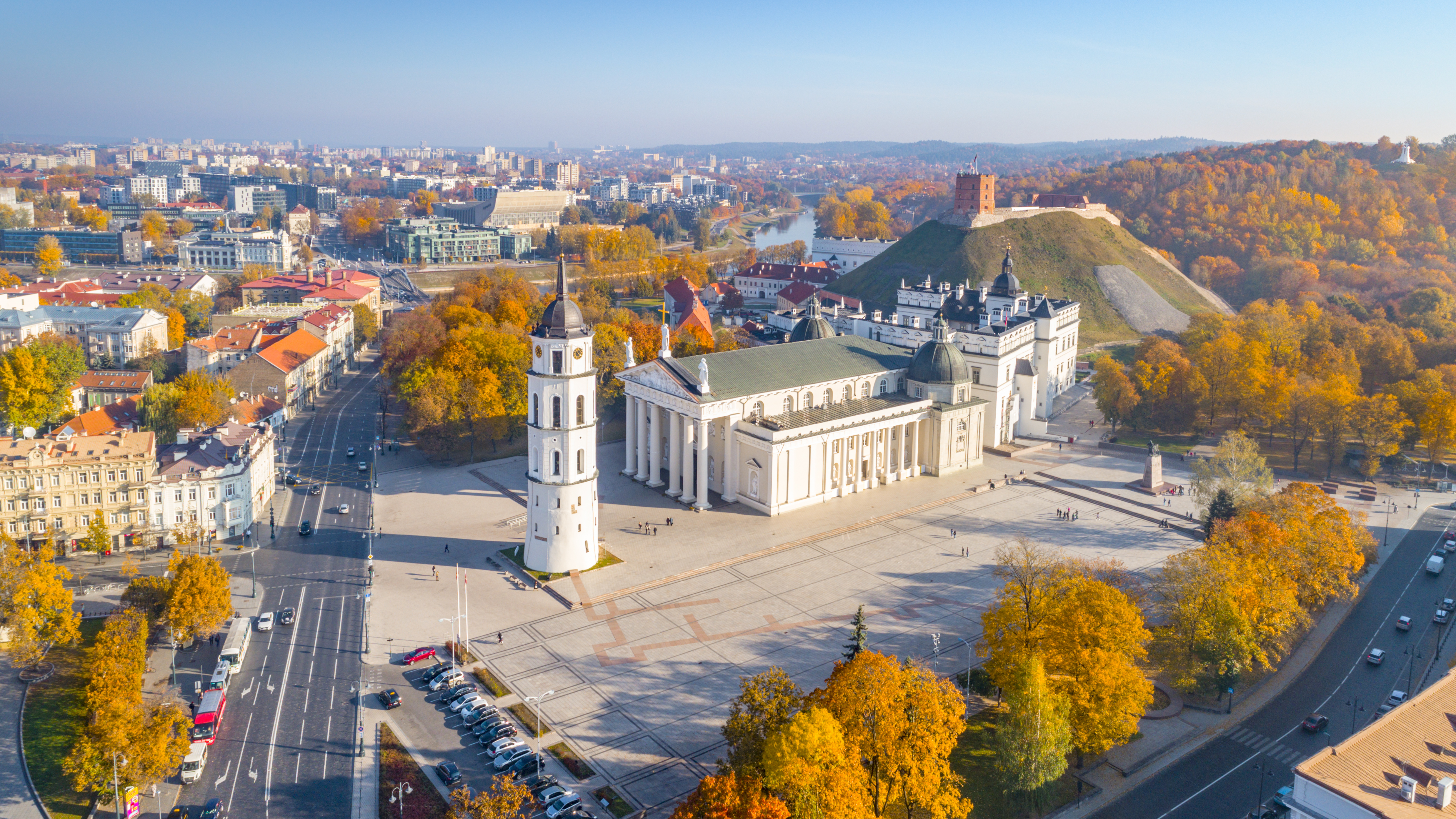
The Ober-Haus Lithuanian Apartment Price Index (OHBI) which tracks changes in apartment prices across the five biggest Lithuanian cities (Vilnius, Kaunas, Klaipėda, Šiauliai and Panevėžys) increased by 1.4% in October 2022 (a 2.2% increase was recorded in September 2022). In the last 12 months, the overall apartment purchase price level in these five cities has risen by 22.5% (with annual growth achieving 22.7% in September 2022).
In October 2022, apartment sales prices grew 1.7% with the average price per square metre in Lithuania’s capital reaching €2,546 (+42 €/m²). In the same month, Kaunas, Klaipėda, Šiauliai and Panevėžys experienced price increases of 1.3%, 1.2%, 0.2% and 0.3%, with the average price per square metre rising to €1,692 (+21 €/m²), €1,607 (+19 €/m²), €1,066 (+2 €/m²) and €1,054 (+3 €/m²) respectively.
Last year (October 2022 as compared with October 2021) apartment prices increased in all the bigger cities across the country: 25.5% in Vilnius, 19.6% in Kaunas, 18.5% in Klaipėda, 16.9% in Šiauliai and 17.1% in Panevėžys.
According to Raimondas Reginis, Research Manager for the Baltics at Ober-Haus, ‘One could say that the housing market has been in a suspended state during the second half this year. Potential homebuyers remain cautious and don’t rush their decision-making when it comes to buying a dwelling, whereas home sellers are trying to find a balance between their own expectations, and the real estate market price. In the environment of rapidly increasing housing prices, vendors often enter the market with prices higher than the current market price. In demanding a higher price, they expect the general level of housing prices to quickly catch up with the prices they have set, thereby hoping to have their real estate sell for the highest possible price. Earlier, in the context of the previously prevailing optimism and fast price growth, such expectations would actually turn out to be well-founded for the majority of sellers. But the purchasers’ optimism in the real estate market has faded in the second half of this year, which has reduced the market activity overall, and extended the whole deal process. The vendors who have to sell housing more quickly are therefore forced to reconsider the purchase prices offered and reduce their expectations, that no longer match the current reality. So, we are now seeing sellers gradually decrease the asking price of their property, although usually, even after the price correction, they still remain above the dominant price level in the market.
Meanwhile, the sellers who carry a realistic outlook on the current situation and offer housing at the market price might expect their housing to attract enough interest from potential buyers and be sold in a more usual period of time. The most recent apartment market data shows that the activity in the largest and the most important housing segment in the country, despite a slight reduction, has remained stable during the second half of this year. According to the data of the State Enterprise Centre of Registers, there were slightly more than 2,300 older construction apartments sold nationwide in October 2022, indicating that the reported sales volume has stayed practically the same as in July, August and September of this year. The general activity in the country’s secondary apartment market has dropped 15% (during the period from July to October 2022 as compared with July to October 2021), so vendors must objectively assess their expectations and adjust their sales price to at least reflect the market price level. We can see that the housing offered for sale at a price higher than the market price, currently generates little interest among purchasers’, concludes Reginis.
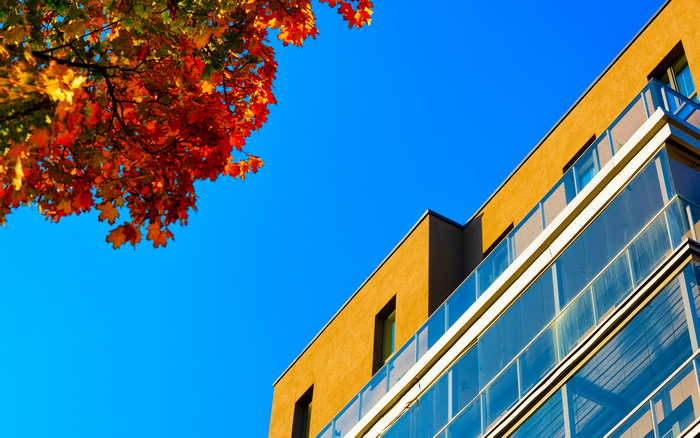 The Ober-Haus Apartment Price Index (OHBI) in Lithuania, which records changes in apartment prices in five major Lithuanian cities (Vilnius, Kaunas, Klaipėda, Šiauliai and Panevėžys), increased by 2.2% in September 2022 (the growth in August 2022 was 2.2%). The apartment prices in the major cities of Lithuania have increased by 22.7% over the last 12 months (the annual growth in August 2022 was 22%).
The Ober-Haus Apartment Price Index (OHBI) in Lithuania, which records changes in apartment prices in five major Lithuanian cities (Vilnius, Kaunas, Klaipėda, Šiauliai and Panevėžys), increased by 2.2% in September 2022 (the growth in August 2022 was 2.2%). The apartment prices in the major cities of Lithuania have increased by 22.7% over the last 12 months (the annual growth in August 2022 was 22%).
In September 2022, apartment sales prices increased by 2.4% in the capital city, Vilnius, and the average price per square meter reached EUR 2,504 (+59 EUR/sqm). In Kaunas, Klaipėda, Šiauliai and Panevėžys, the apartment prices increased by 1.9%, 2.2%, 1.7% and 1.4% respectively and the average price per square metre increased to EUR 1.671 (+32 EUR/sqm), EUR 1,588 (+33 EUR/sqm), EUR 1,064 (+18 EUR/sqm) and EUR 1,051 (+14 EUR/sqm) respectively.
Annual growth (September 2022 compared to September 2021) in apartment sales prices was recorded in all major cities of the country: 26.1% – in Vilnius, 19.3% – in Kaunas, 18.2% – in Klaipėda, 17.3% – in Šiauliai and 17.8% – in Panevėžys.
“Recent data of the residential real estate market show that in autumn, in the primary apartment market, buyers pushed the brakes down and the number of new apartment purchase agreements fell to a very low level. According to Ober-Haus, only slightly more than 270 apartments were sold in the primary market of the country’s capital city in Q3 2022. The last time such low activity in the primary market was recorded only in 2012 and in 2020 during the first wave of COVID-19. Meanwhile, in the secondary market of older apartments, sales volumes have remained quite high. According to the State Enterprise Centre of Registers, in September 2022, slightly over 2,300 older apartments were sold in Lithuania or 14% less than in September 2021. Despite the decreasing activity of buyers in the secondary apartment market of the country since March 2022, the total number of transactions remains at the 2019-2020 level and no further decline has yet been recorded.
Speaking about the sales prices of apartments, we do not see any obvious negative changes, except for the declining expectations of some sellers, who are no longer as optimistic as before, and, in some cases, slightly lower sales prices. Looking at the sales prices of the transactions for apartment sales actually registered in recent months, the prices in the housing market remain at the peak. For example, when analysing the largest apartment segment in Vilnius – older apartments in residential districts – their sales prices have already exceed those in the previous peak in 2007–2008. The biggest price change has been recorded in the last 12 months. The analysis of the registered purchase and sale transactions of apartments shows that in typical residential areas of the city, apartment sales prices have increased by as many as 20-40% per year. For example, in Fabijoniškės, one of the largest districts by population, the median sales price of a 1–4-room apartment built between 1987 and 1991 was 2,117 EUR/sqm in July–September 2022. This is 43% higher than in the same period in 2021. The median sales price of the apartments in the residential district of Šeškinė rose by 36% to 2,012 EUR/sqm over the year and the prices per square metre in the residential district of Pilaitė rose by 33% to EUR 1,984, while, for example, the prices in the residential district of Karoliniškės rose by 18% to EUR 1,809 over the year. If, a year ago, sales prices in these districts of the capital city were by a tenth lower than the prices in the previous peak period (end of 2007–beginning of 2008), so now they have exceeded all previous price records. Generally speaking, after a particularly rapid increase in home prices in 2021–2022 (at least in Vilnius), prices of all home segments have hit the highest point in the history of the country.
Of course, we live in the high inflation environment where not only real estate prices, but also the prices of all other goods and services are rising rapidly. Fitting out costs, which often make a significant part of the real estate price, have an impact on the final sales price of real estate. Recent increase in the prices of fitting out materials, furnishings and repair works is also reflected in home prices. For example, buyers pay more than 2,500 EUR/sqm for a newly fitted out apartment in an old apartment building in a typical residential area in Vilnius. A year ago, nothing of the kind was recorded. Therefore, despite a marked decline in optimism in the residential real estate in recent months, we still see the inertia of expectations formed in 2021,” Raimondas Reginis, Head of Market Research for Baltic Countries at Ober-Haus, noted.
 The leading international business and finance magazine Euromoney announced Ober-Haus as the best real estate company of 2022 in Lithuania. In the annual Euromoney awards, Ober-Haus took first place in all categories – the best company in Lithuania in terms of Agency-Letting/sales, Property Valuation and Research as well as the best Overall RE company in Lithuania.
The leading international business and finance magazine Euromoney announced Ober-Haus as the best real estate company of 2022 in Lithuania. In the annual Euromoney awards, Ober-Haus took first place in all categories – the best company in Lithuania in terms of Agency-Letting/sales, Property Valuation and Research as well as the best Overall RE company in Lithuania.
“I am delighted that we have managed to retain the top service quality evaluation for many years. We see again that work which relies on a high level of professional expertise, experience and honesty is a firm basis for stable and competitive business. As before, we will continue to focus on the quality of our services, responding to our clients’ needs and building our leadership team,” – Audrius Šapoka, General Manager of Ober-Haus, says.
Last year, the turnover of Ober-Haus in Lithuania increased by more than one-third – to € 5.63 million (excl. VAT). The company provided almost 14,000 real estate services: it has carried out more than 1,300 brokerage transactions and a record number of valuations throughout the firm’s lifetime – more than 12,400 asset and business valuation reports, valuation expertise and advice to clients.
The 18th Euromoney Awards evaluated real estate companies by surveying Lithuanian real estate market participants (real estate experts, developers, representatives of construction companies and financial institutions, investors, etc.) and assessing the company’s services, assets under management, company growth and other indicators. Ober-Haus has been awarded the highest Euromoney ratings in various categories for the eighth consecutive year and has been voted the best real estate company in Lithuania for the fifth time.
Ober-Haus has operated in Lithuania since 1998 and has been one of the major real estate service providers in Lithuania and the Baltics and is part of the Kiinteistömaailma group the largest Finnish brokerage and real estate consultancy services company. The company provides brokerage services for buying, selling and renting commercial and residential property, real estate and movable property and business valuation, consulting and market research. Ober-Haus has 20 offices in the largest cities in Lithuania, Latvia and Estonia, and employs more than 240 people.
 The Ober-Haus Apartment Price Index (OHBI) in Lithuania, which records changes in apartment prices in five major Lithuanian cities (Vilnius, Kaunas, Klaipėda, Šiauliai and Panevėžys), increased by 2.2% in August 2022 (the growth in July 2022 was 2.6%). The apartment prices in the major cities of Lithuania have increased by 22.0% over the last 12 months (the annual growth in July 2022 was 22.3%).
The Ober-Haus Apartment Price Index (OHBI) in Lithuania, which records changes in apartment prices in five major Lithuanian cities (Vilnius, Kaunas, Klaipėda, Šiauliai and Panevėžys), increased by 2.2% in August 2022 (the growth in July 2022 was 2.6%). The apartment prices in the major cities of Lithuania have increased by 22.0% over the last 12 months (the annual growth in July 2022 was 22.3%).
In August 2022, apartment sales prices increased by 2.7% in the capital city, Vilnius, and the average price per square meter reached EUR 2.445 (+64 EUR/sqm). In Kaunas, Klaipėda, Šiauliai and Panevėžys, the apartment prices increased by 1.5%, 1.8%, 0.5% and 1.1% respectively and the average price per square metre increased to EUR 1,639 (+24 EUR/sqm), EUR 1,555 (+28 EUR/sqm), EUR 1,044 (+6 EUR/sqm) and EUR 1,037 (+12 EUR/sqm) respectively.
Annual growth (August 2022 compared to August 2021) in apartment sales prices was recorded in all major cities of the country: 25.4% – in Vilnius, 19.4% – in Kaunas, 16.6% – in Klaipėda, 16.2% – in Šiauliai and 16.9% – in Panevėžys.
“Despite lower expectations of the population and businesses concerning the country’s future economic situation, recent data of the residential property market do not yet show any signs of significant negative sentiments in the market. Although the number of new purchase agreements in the primary apartment market in major cities has fallen, the number of registered transactions remains relatively high. According to the State Enterprise Centre of Registers, almost 2,900 apartments were sold in Lithuania in August 2022 or 5% less than in August 2021, but the figure was the same as that in August 2020.
Of course, the inertia of the real estate market has a significant impact on official statistics. First and foremost, recent months have seen a sufficiently large number of transactions for the registration of newly-build apartments, however, these transactions were negotiated earlier, e.g. in 2020–2021. Even in the secondary market, it may take up to 1-2 months from the buyer’s decision to purchase a specific property to the registration of the final transaction. As a result, a significant increase in apartment sales prices, even in the context of a slowing and less optimistic market outlook, has been recorded. At present, the situation in the residential property market can be identified as sufficiently balanced, where the buyer and seller are in very similar negotiating positions. In the secondary market, the sellers still feel sufficiently strong, although not all buyers are willing to pay the price that does not meet their expectations. The negotiating positions of sellers may get significantly weaker only if the overall housing market activity stalls faster than we have seen so far. The sellers who wish to sell their homes quickly would have to compete in the market by offering lower prices than they have done so far. Looking at the economic development prospects of the country in the near future it seems that it will be increasingly difficult for the sellers of residential properties to convince buyers to pay record-high prices,” Raimondas Reginis, Head of Market Research for Baltic Countries at Ober-Haus, noted.
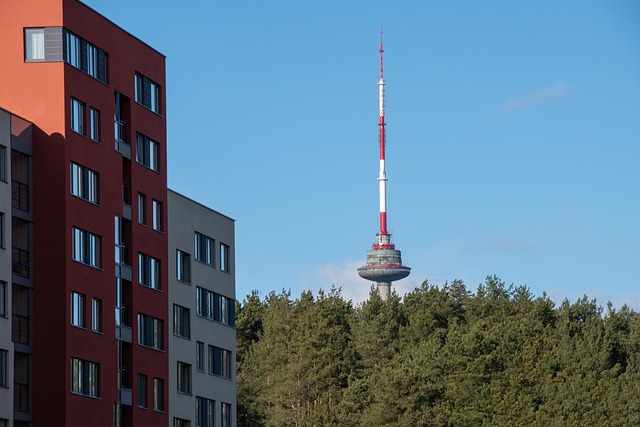 The Ober-Haus Apartment Price Index (OHBI) in Lithuania, which records changes in apartment prices in five major Lithuanian cities (Vilnius, Kaunas, Klaipėda, Šiauliai and Panevėžys), increased by 2.6% in July 2022 (the growth in June 2022 was 2.9%). The apartment prices in the major cities of Lithuania have increased by 22.3% over the last 12 months (the annual growth in June 2022 was 21.2%).
The Ober-Haus Apartment Price Index (OHBI) in Lithuania, which records changes in apartment prices in five major Lithuanian cities (Vilnius, Kaunas, Klaipėda, Šiauliai and Panevėžys), increased by 2.6% in July 2022 (the growth in June 2022 was 2.9%). The apartment prices in the major cities of Lithuania have increased by 22.3% over the last 12 months (the annual growth in June 2022 was 21.2%).
In July 2022, apartment sales prices increased by 3.2% in the capital city, Vilnius, and the average price per square meter reached EUR 2.381 (+73 EUR/sqm). In Kaunas, Klaipėda, Šiauliai and Panevėžys, the apartment prices increased by 1.8%, 2.1%, 1.0% and 1.3% respectively and the average price per square increased to EUR 1,615 (+28 EUR/sqm), EUR 1,527 (+32 EUR/sqm), EUR 1.040 (+10 EUR/sqm) and EUR 1,025 (+13 EUR/sqm) respectively.
Annual growth (July 2022 compared to July 2021) in apartment sales prices increased in all major cities of the country: 25.2% – in Vilnius, 20.9% – in Kaunas, 16.7% – in Klaipėda, 17.5% – in Šiauliai and 17.2% – in Panevėžys.
“The latest information shows that activity in the country’s housing market remains noticeably slower than last year, but overall interest in residential property is still at a high level. This is particularly visible from rising prices of residential property, which show a strong position of sellers both in the primary and secondary markets. However, we may expect more pessimistic moods in the housing market of the country in the course of the year, because both the country’s businesses and the population are already facing various economic challenges. This also reflects in gradually deteriorating overall population mood.
According to the State Enterprise Centre of Registers, almost 3,000 apartments were sold in Lithuania in July or 17% less than in July 2021. Considering that in 2021 the country’s housing market saw record market activity, current market activity remains high, i.e. it returned to the 2019–2020 level (year-over-year). According to Statistics Lithuania, consumer confidence declined by 1 percentage point to minus 12 in July 2022, the lowest rate since April 2020 (the first wave of the Coronavirus pandemic).
It is clear that in the context of current geopolitical and economic challenges, the population is increasingly pessimistic about both their financial situation and the economic development prospects of the country. While the residential property prices and the prices of fitting out or maintenance of homes remain high the possibilities for some people to purchase and maintain a home are declining. This is particularly the case in the segment of new apartments, where prices have recently increased faster than those of older apartments. Therefore, it is likely that at the end of the year the overall market activity may shrink even further, and there will be less and less space for price growth of residential property,” Raimondas Reginis, Head of Market Research for Baltic Countries at Ober-Haus, noted.
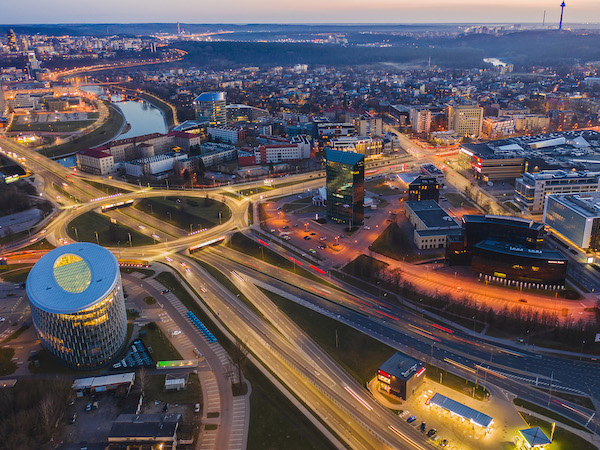
 Search
Search 
